Image of 1976 Oldsmobile Omega, Note: These illustrations use artistic license and may differ from actual historical models.
Performance Metrics
Fundamental Metrics
Emotional Appeal
MMP Rating
| Engine Specifications | |
|---|---|
| Engine: | 250 cu in (4.1 L) Chevrolet I6, 260 cu in (4.3 L) Oldsmobile V8, 350 cu in (5.7 L) Oldsmobile V8 |
| Displacement: | 4.1 - 5.7 L |
| Horsepower: | 110 - 170 hp |
| Torque: | 205 - 275 lb-ft |
| Compression Ratio: | 8.0:1 - 8.5:1 |
| Ignition System: | Conventional |
| Cooling System: | Liquid-cooled |
| Performance Specifications | |
| 0-60 Time: | Estimated 10 - 12 seconds |
| 1/4 Mile Time: | Estimated 17 - 19 seconds |
| Top Speed: | 105 - 115 mph |
| Transmission and Drive | |
| Drive Type: | Rear-wheel drive |
| Transmission Type: | 3-speed manual, 3-speed automatic, 4-speed manual |
| Fuel and Efficiency | |
| Fuel System Type: | Carburetor |
| MPG: | Estimated 15 - 20 mpg |
| Dimensions and Brakes | |
| Brakes: | Front disc, rear drum |
| Wheelbase: | 111.0 in |
| Weight: | 3,400 - 3,600 lbs |
Note: Specifications for classic cars are given to the best of our ability, considering the limited and variant data available.
1976 Oldsmobile Omega: A Forgotten Gem of the '70s
The 1976 Oldsmobile Omega stands as a testament to an era when American automotive design was in a state of transition, grappling with the aftermath of the oil crisis and the onset of emissions regulations. Born from General Motors' reputable assembly lines, this often-overlooked classic was Oldsmobile's answer to the compact car market, which was rapidly expanding in response to consumers' demands for more fuel-efficient vehicles. While its siblings, the Chevrolet Nova, Pontiac Ventura, and Buick Apollo garnered more attention, the Omega held its own with a unique blend of style and practicality. A notable moment in its history was its role as a pace car in various local motorsport events, which added a touch of racing pedigree to its suburban charm.
Design and Innovation
The exterior styling of the 1976 Oldsmobile Omega exuded a subdued elegance with its clean lines and balanced proportions. The car's front fascia, with its distinctive grille and headlamp arrangement, gave it an unmistakable Oldsmobile identity. Inside, passengers were greeted with a cabin that prioritized comfort and simplicity. The quality of materials reflected the era's standards, with options for vinyl or cloth upholstery. Technologically, it featured innovations like an available HEI (High Energy Ignition) system that improved reliability and efficiency over older points-style ignitions. Color options ranged from classic whites and blacks to more vibrant shades like Firethorn Red, with popular choices often leaning towards earth tones that were in vogue at the time. Buyers could choose between coupe, sedan, and hatchback body styles, with the coupe being particularly sought after for its sportier appearance.
Historical Significance
In terms of impact, the Omega played a crucial role in demonstrating that Oldsmobile could produce a compact car without sacrificing the brand's upscale image. It set itself apart with an emphasis on luxury features not commonly found in compact models of the time. This approach influenced future designs where comfort became as important as efficiency in smaller cars.
Performance and Handling
Performance-wise, the 1976 Omega wasn't a powerhouse by modern standards but offered respectable figures for its time. With optional engines like the 350 cubic inch V8, it could achieve 0-60 mph in under 10 seconds—a decent feat for a compact car of that period. The handling was typical for American cars of the mid-70s: soft and comfortable rather than sharp or sporty. Drivers could expect a smooth ride over bumps with moderate body roll on windy roads. Behind the wheel, one would hear the characteristic rumble of an American V8 engine, contributing to an engaging driving experience.
Ownership Experience
The Omega served various roles from being a reliable daily driver to gracing local car shows as a preserved classic. Its maintenance was straightforward by today's standards, making it relatively easy for owners to keep it running without specialized tools or knowledge. However, some parts may be harder to come by due to its lower production numbers compared to its GM cousins.
Fun Facts
A little-known fact about the '76 Omega is that there were special edition models such as the SX package which added sporty touches like stripes and rally wheels. Although not known for breaking records or widespread celebrity ownerships, this Oldsmobile has had its fair share of screen time in movies and television shows set in the '70s era.
Collector's Information
Today, finding a 1976 Oldsmobile Omega can be somewhat challenging as they weren't produced in large numbers like some other GM models—estimates suggest tens of thousands were made rather than hundreds of thousands. As for value range, well-preserved examples can fetch anywhere from $5,000 to $15,000 depending on condition and originality. Price trends show slight appreciation due to their increasing rarity and interest among collectors who value their understated charm.
Conclusion
The 1976 Oldsmobile Omega may not be the most famous classic out there but it encapsulates an interesting chapter in automotive history where luxury met practicality in compact form. Its legacy lies in showing that downsizing didn't have to mean downgrading—a philosophy that continues to resonate in today's automotive market.
1976 Oldsmobile Omega Catalog of Parts
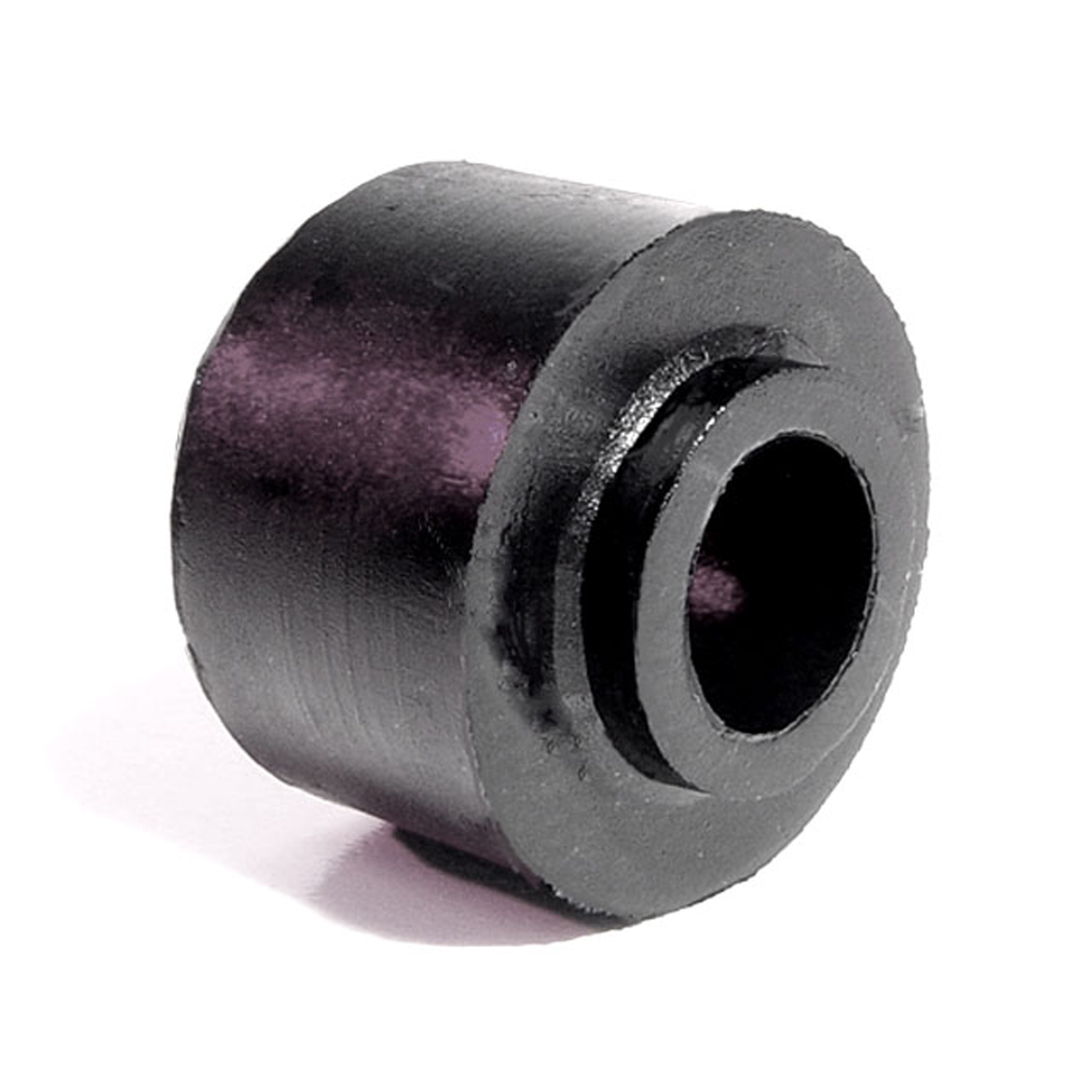 1976 Oldsmobile Omega Shock Absorber Grommet. 1" bottom O.D., 3/4" high-BN 1Shock Absorber Grommet. 1" bottom O.D., 3/4" high., with 7/16" I.D. Each
1976 Oldsmobile Omega Shock Absorber Grommet. 1" bottom O.D., 3/4" high-BN 1Shock Absorber Grommet. 1" bottom O.D., 3/4" high., with 7/16" I.D. Each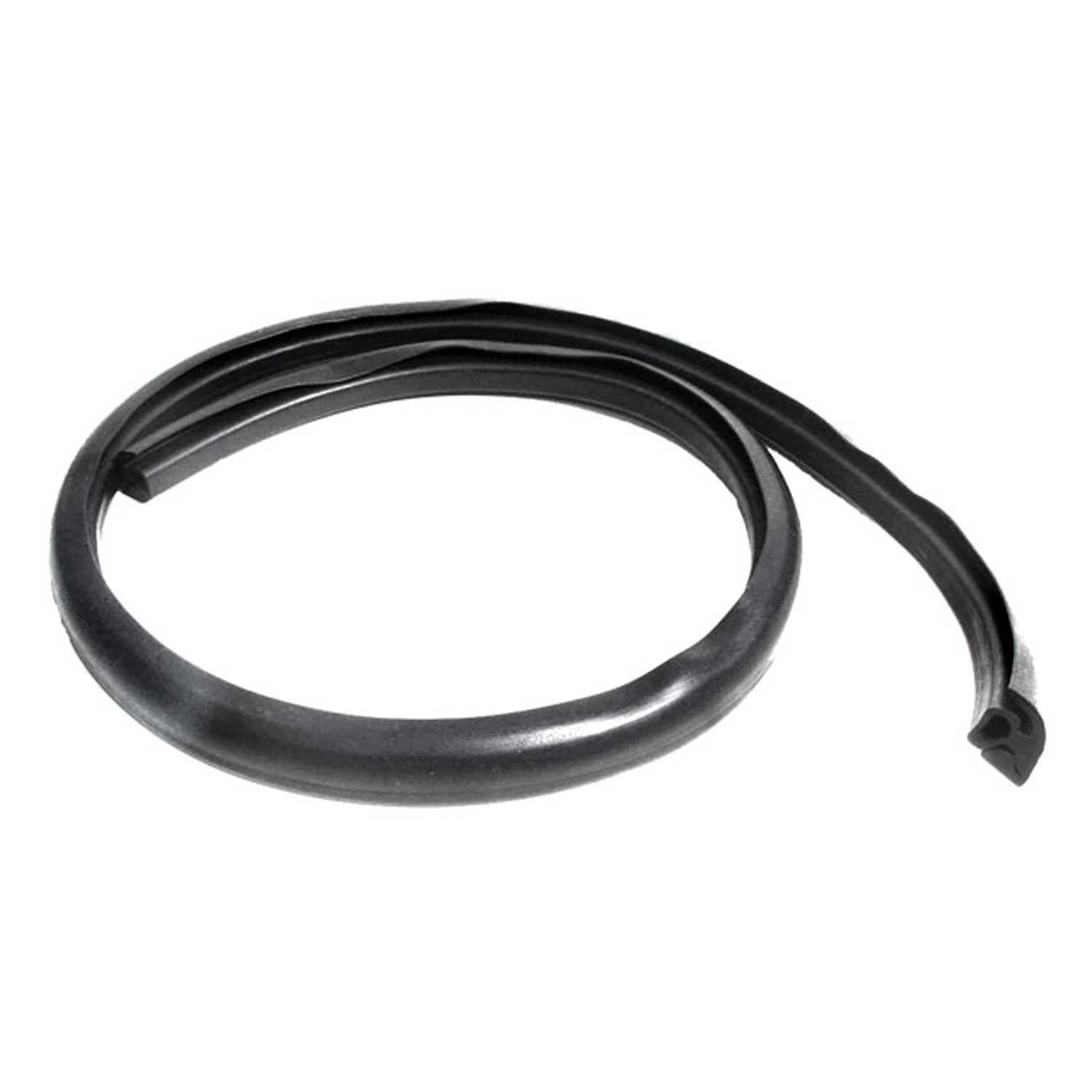 1976 Oldsmobile Omega Hood to Cowl Seal, '68-'79 GM X Body, Each-CS 2-FHood to Cowl Seal, '68-'79 GM X Body, 43-1/4" Long, Each.
1976 Oldsmobile Omega Hood to Cowl Seal, '68-'79 GM X Body, Each-CS 2-FHood to Cowl Seal, '68-'79 GM X Body, 43-1/4" Long, Each.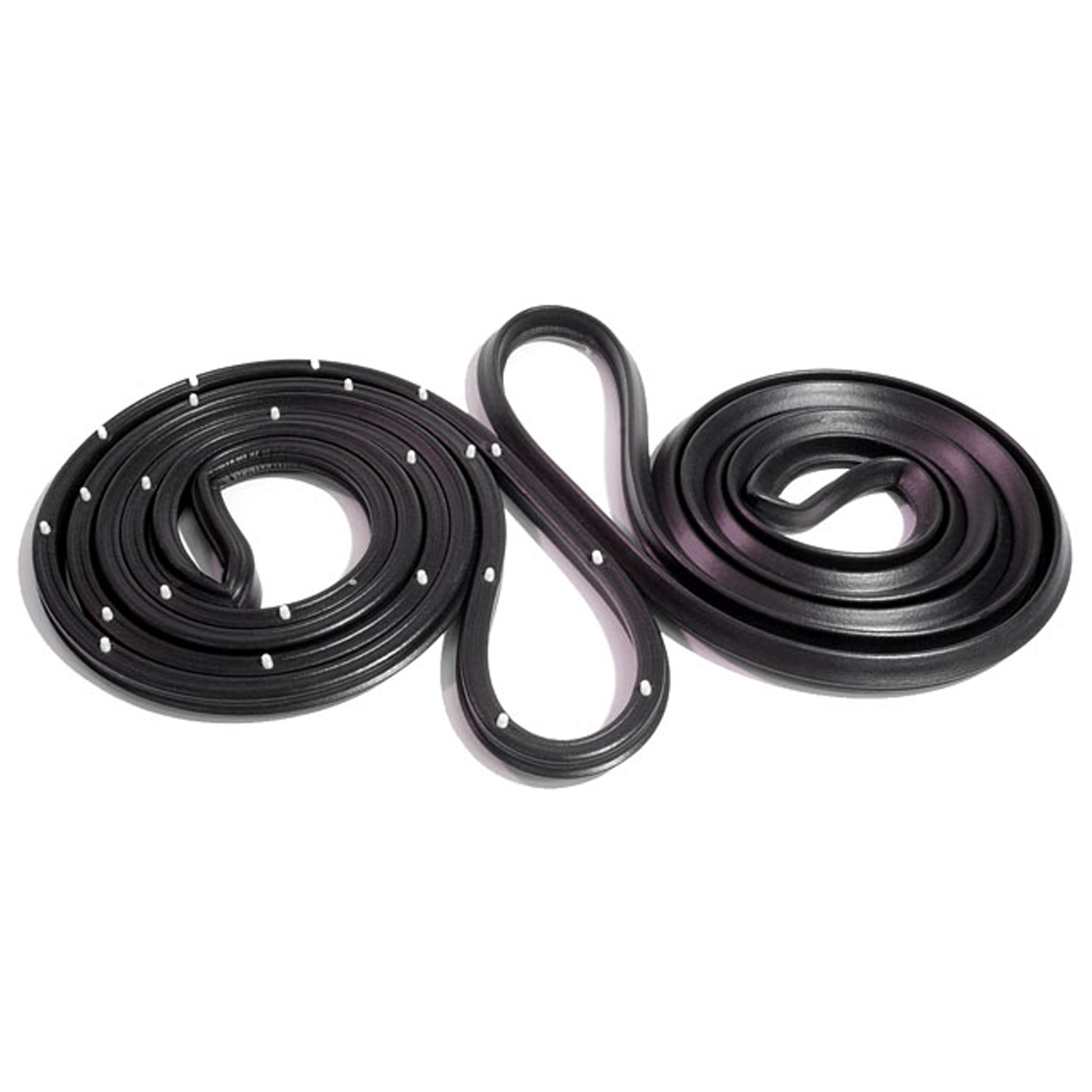 1976 Oldsmobile Omega Door Seals, with Clips and Molded Ends. For 2-Door Sedan-LM 20-ODoor Seals, with Clips and Molded Ends. For 2-Door Sedan. Pair R&L
1976 Oldsmobile Omega Door Seals, with Clips and Molded Ends. For 2-Door Sedan-LM 20-ODoor Seals, with Clips and Molded Ends. For 2-Door Sedan. Pair R&L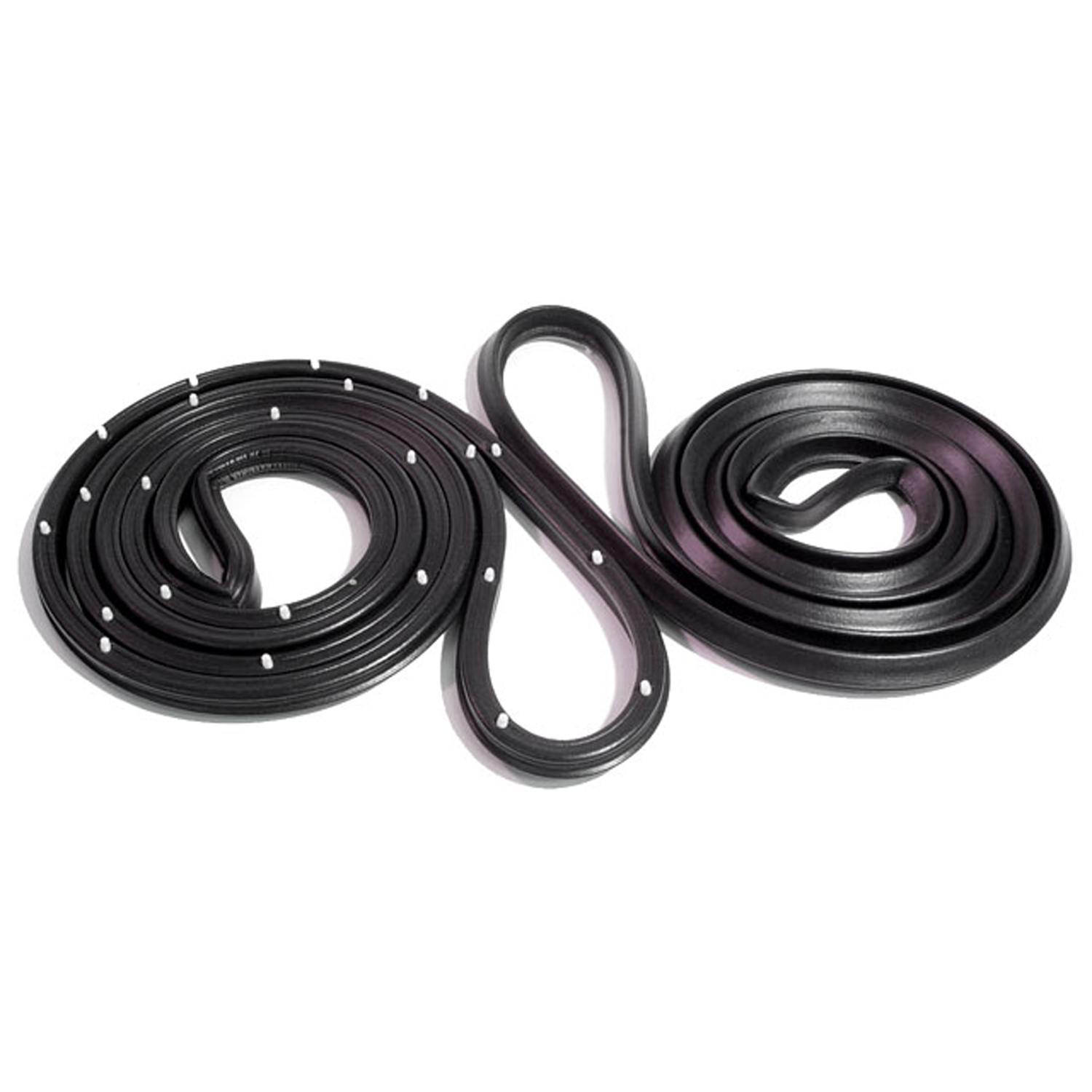 1976 Oldsmobile Omega Front Molded Door Seals with Clips. For 4-Door Sedan-LM 20-PFront Molded Door Seals with Clips. For 4-Door Sedan. Pair R&L
1976 Oldsmobile Omega Front Molded Door Seals with Clips. For 4-Door Sedan-LM 20-PFront Molded Door Seals with Clips. For 4-Door Sedan. Pair R&L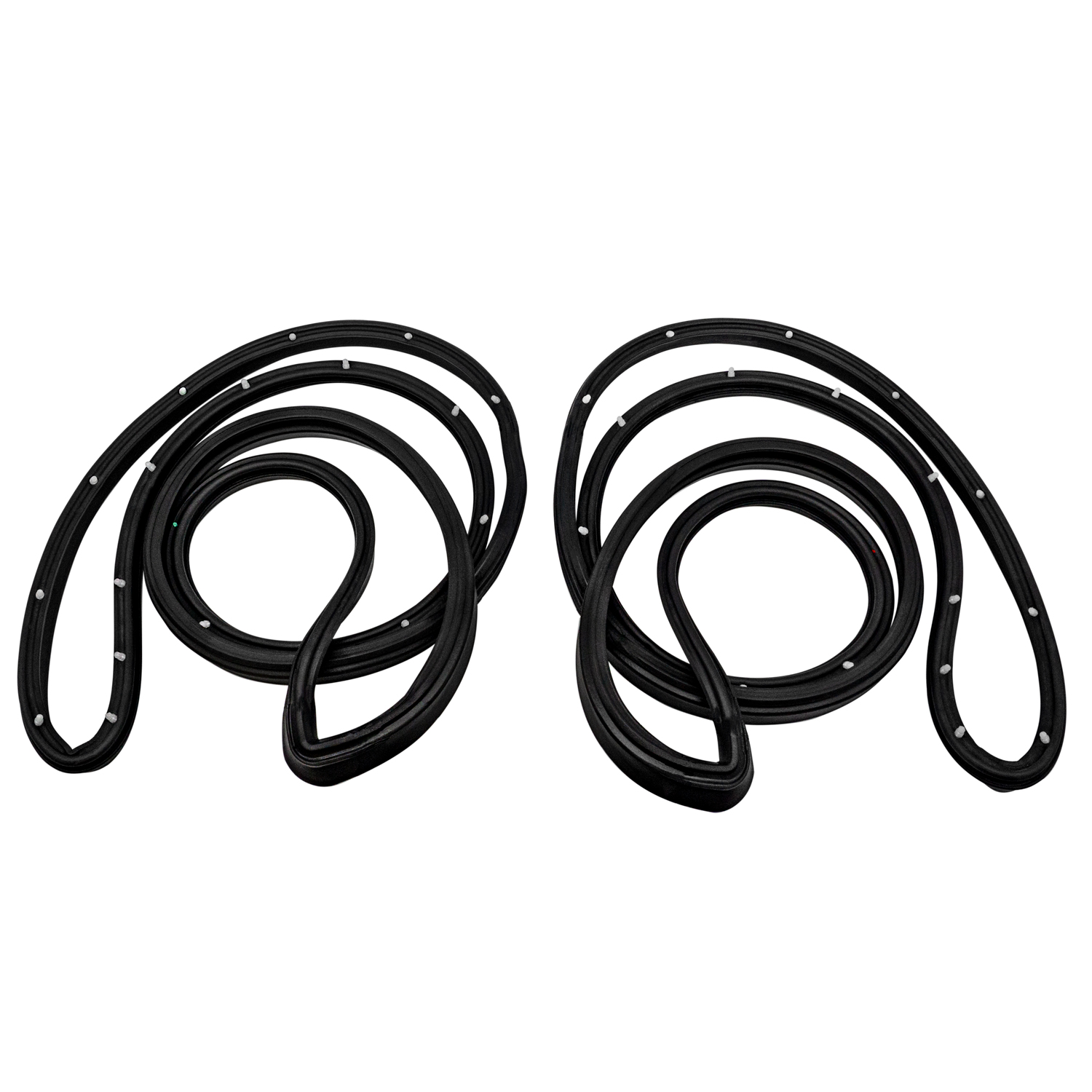 1976 Oldsmobile Omega Rear Molded Door Seals, with Clips. For 4-door sedan-LM 20-P/RRear Molded Door Seals, with Clips. For 4-door sedan. Pair R&L
1976 Oldsmobile Omega Rear Molded Door Seals, with Clips. For 4-door sedan-LM 20-P/RRear Molded Door Seals, with Clips. For 4-door sedan. Pair R&L 1976 Oldsmobile Omega Trunk Liner. Loose weave, jet black. 50" wide-M 30Trunk Liner. Loose weave, jet black. 50" wide. Sold by the foot
1976 Oldsmobile Omega Trunk Liner. Loose weave, jet black. 50" wide-M 30Trunk Liner. Loose weave, jet black. 50" wide. Sold by the foot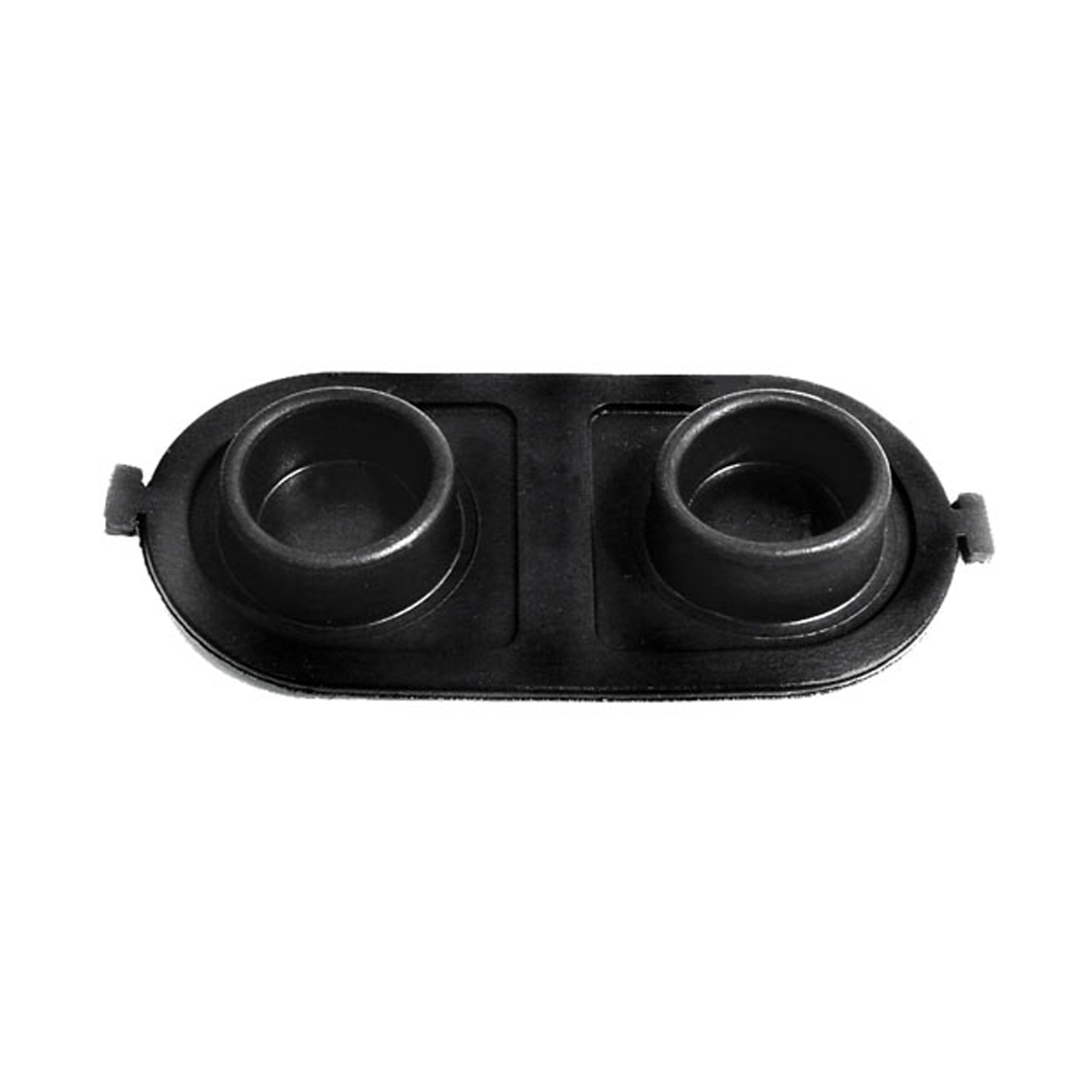 1976 Oldsmobile Omega Brake Master Cylinder Cover Seal. Replaces OEM #5470861-RP 2-EBrake Master Cylinder Cover Seal. Replaces OEM #5470861. 5" X 2-1/2". Each
1976 Oldsmobile Omega Brake Master Cylinder Cover Seal. Replaces OEM #5470861-RP 2-EBrake Master Cylinder Cover Seal. Replaces OEM #5470861. 5" X 2-1/2". Each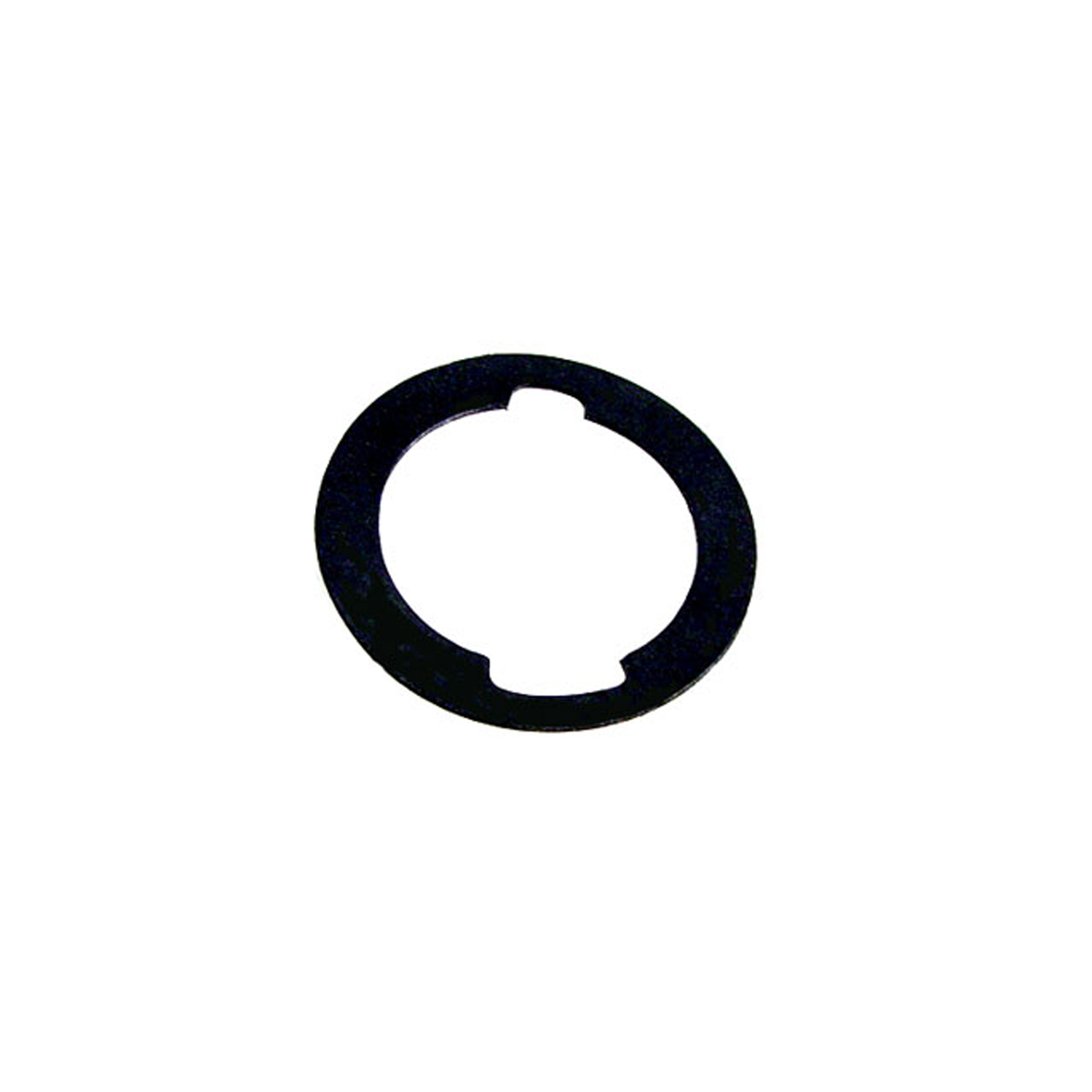 1976 Oldsmobile Omega Unbeaded Door and Trunk Lock Gasket. 1-3/16" O.D., 7/8" I.D-UM 1600-100Unbeaded Door and Trunk Lock Gasket. 1-3/16" O.D., 7/8" I.D. Each
1976 Oldsmobile Omega Unbeaded Door and Trunk Lock Gasket. 1-3/16" O.D., 7/8" I.D-UM 1600-100Unbeaded Door and Trunk Lock Gasket. 1-3/16" O.D., 7/8" I.D. Each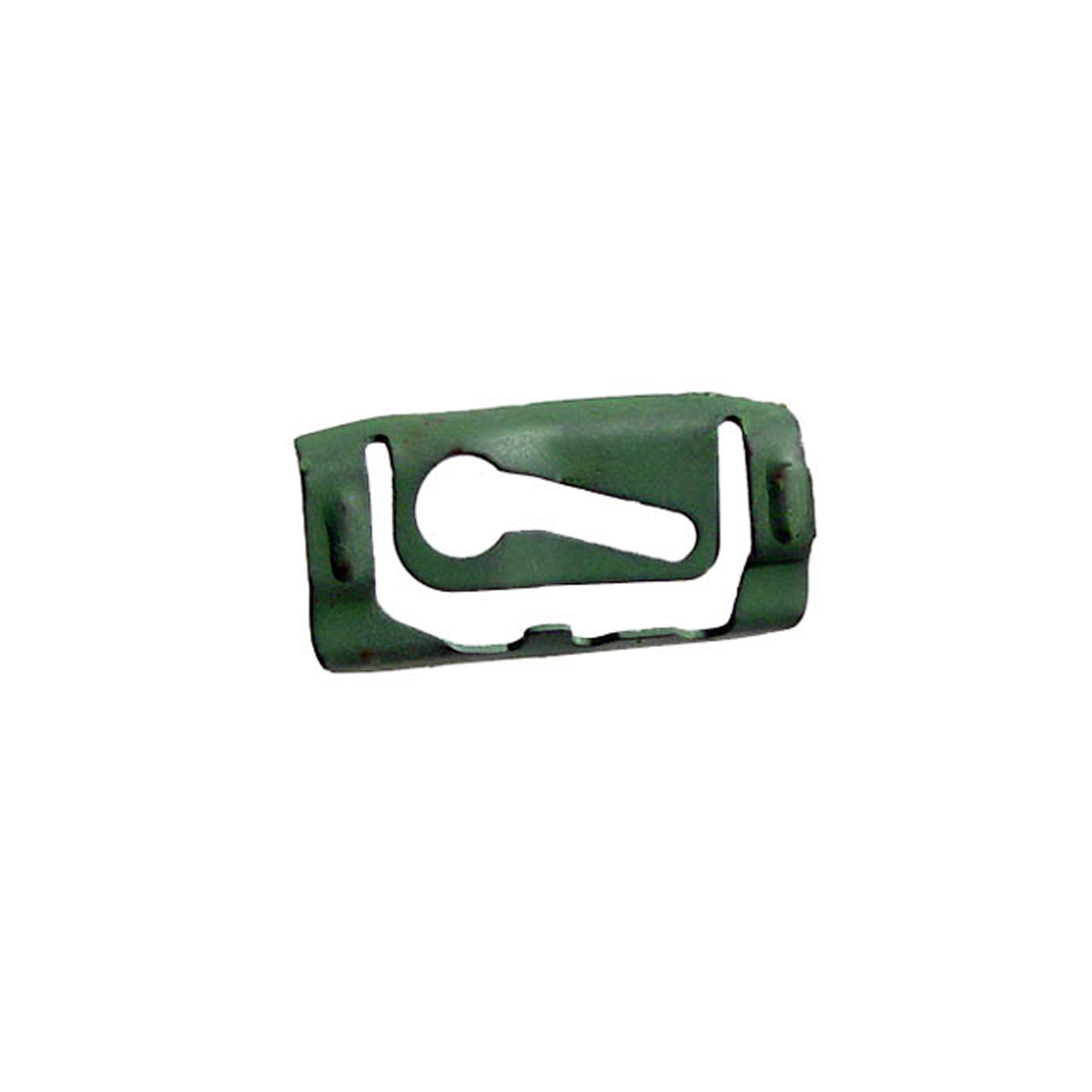 1976 Oldsmobile Omega Quarter Window Reveal Molding Clip. Made of Steel-WF 205Quarter Window Reveal Molding Clip. Made of Steel. 1-3/8" X 11/16". Each
1976 Oldsmobile Omega Quarter Window Reveal Molding Clip. Made of Steel-WF 205Quarter Window Reveal Molding Clip. Made of Steel. 1-3/8" X 11/16". Each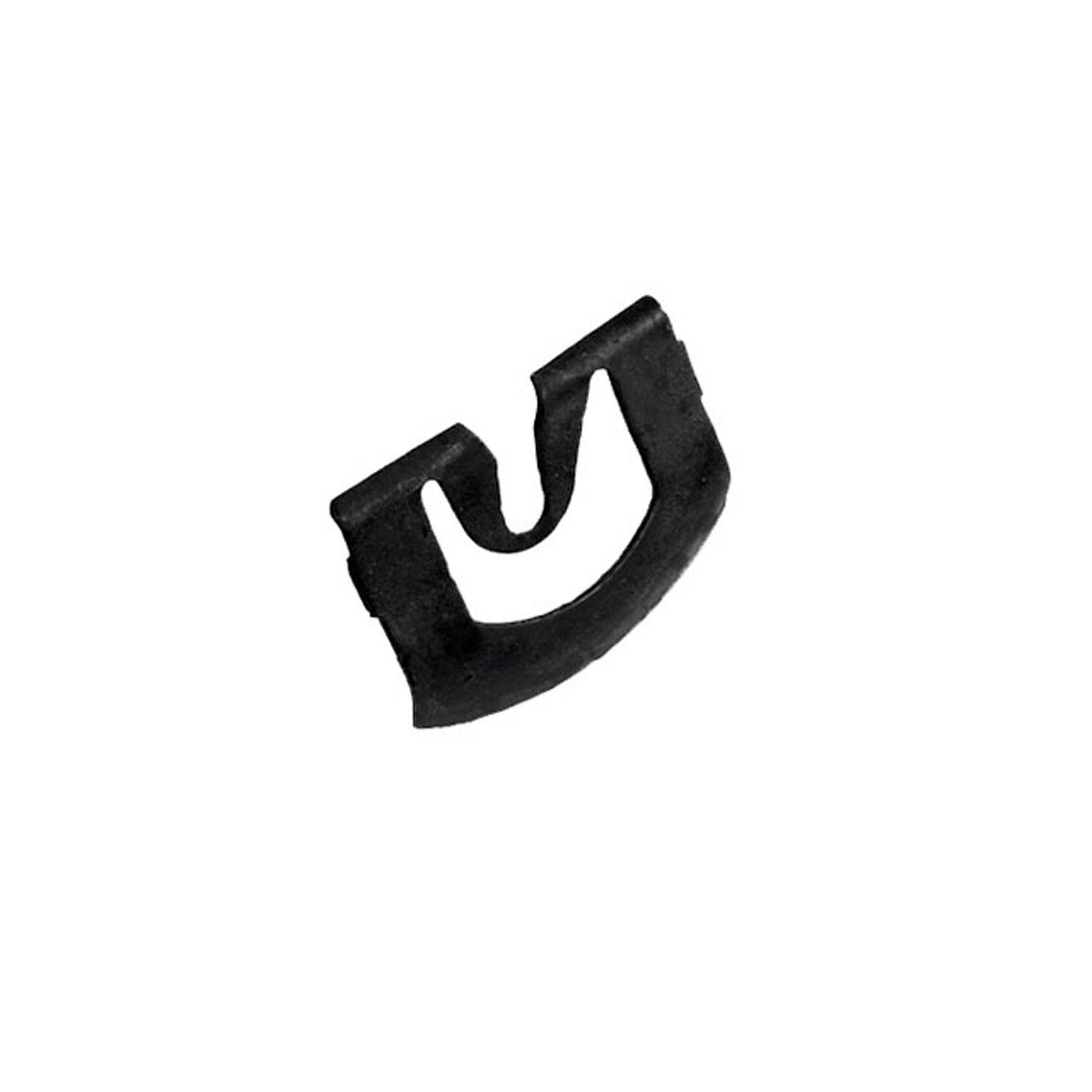 1976 Oldsmobile Omega Windshield Reveal Molding Clip. Made of steel. 13/16" x 1"-WF 209Windshield Reveal Molding Clip. Made of steel. 13/16" x 1". Each
1976 Oldsmobile Omega Windshield Reveal Molding Clip. Made of steel. 13/16" x 1"-WF 209Windshield Reveal Molding Clip. Made of steel. 13/16" x 1". Each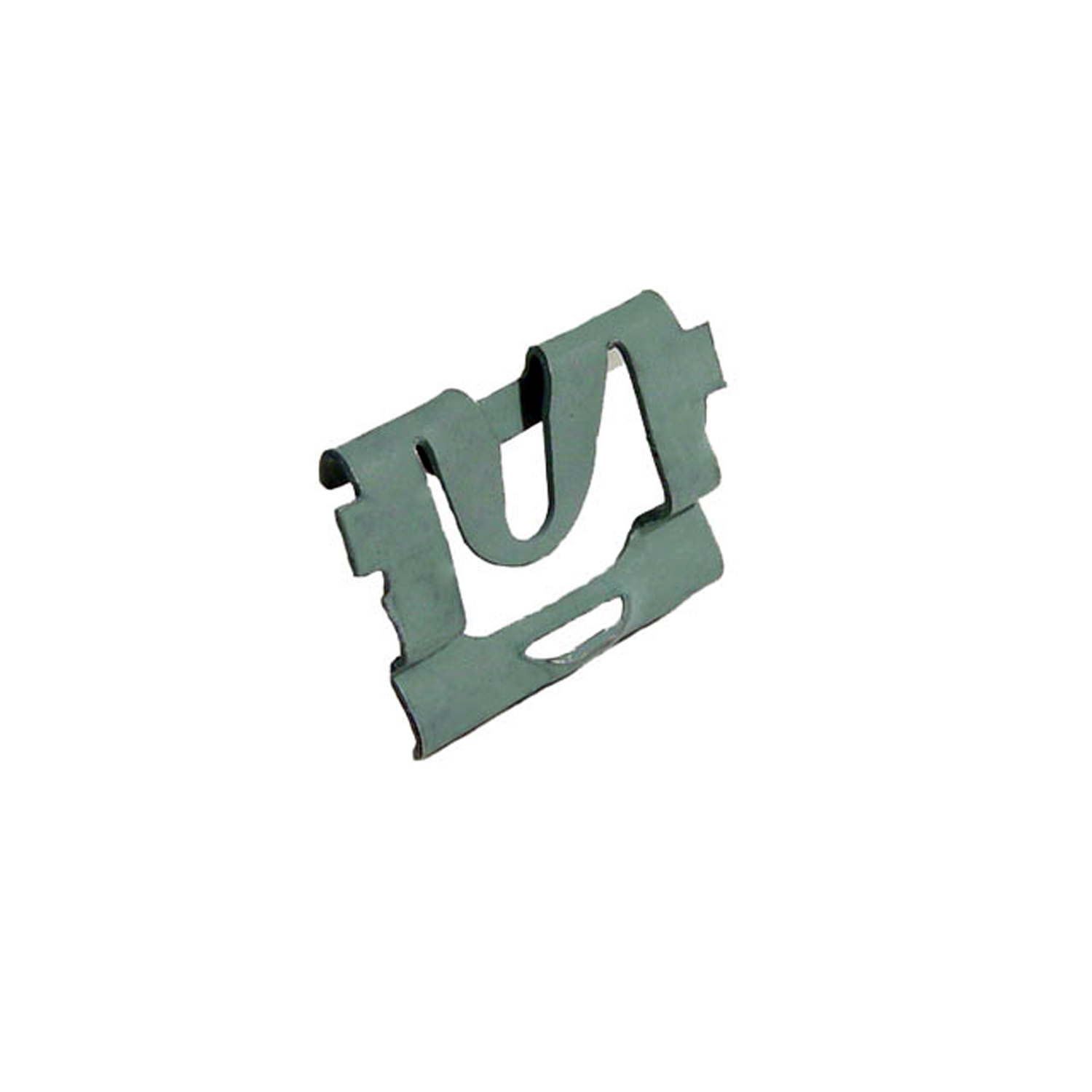 1976 Oldsmobile Omega Windshield Reveal Molding Clip. For models with vinyl top-WF 210Windshield Reveal Molding Clip. For models with vinyl top. 3/4" x 1-1/16". Each
1976 Oldsmobile Omega Windshield Reveal Molding Clip. For models with vinyl top-WF 210Windshield Reveal Molding Clip. For models with vinyl top. 3/4" x 1-1/16". Each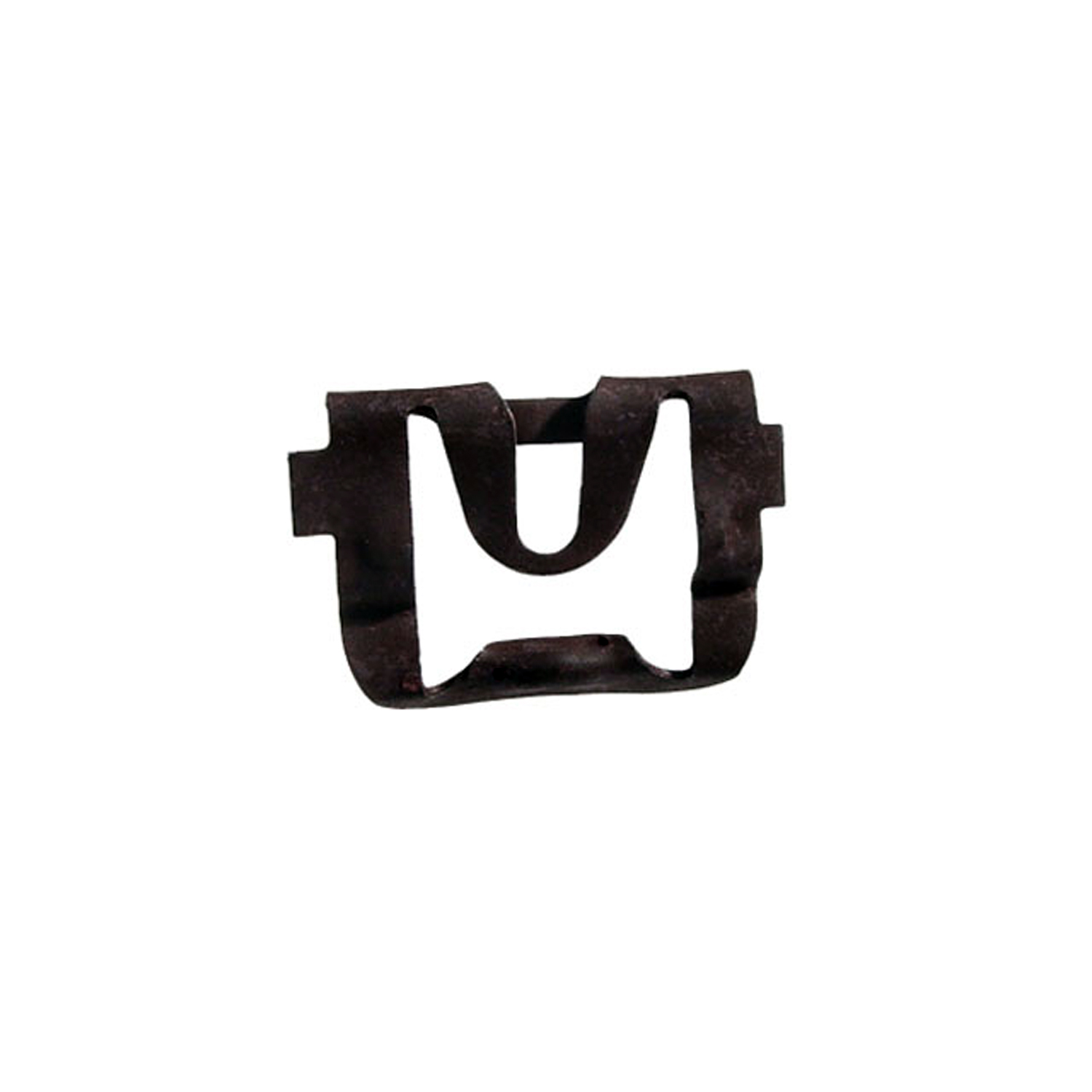 1976 Oldsmobile Omega Rear Windshield Reveal Molding Clip. Made of steel-WF 211Rear Windshield Reveal Molding Clip. Made of steel. 15/16" X 3/4". Each
1976 Oldsmobile Omega Rear Windshield Reveal Molding Clip. Made of steel-WF 211Rear Windshield Reveal Molding Clip. Made of steel. 15/16" X 3/4". Each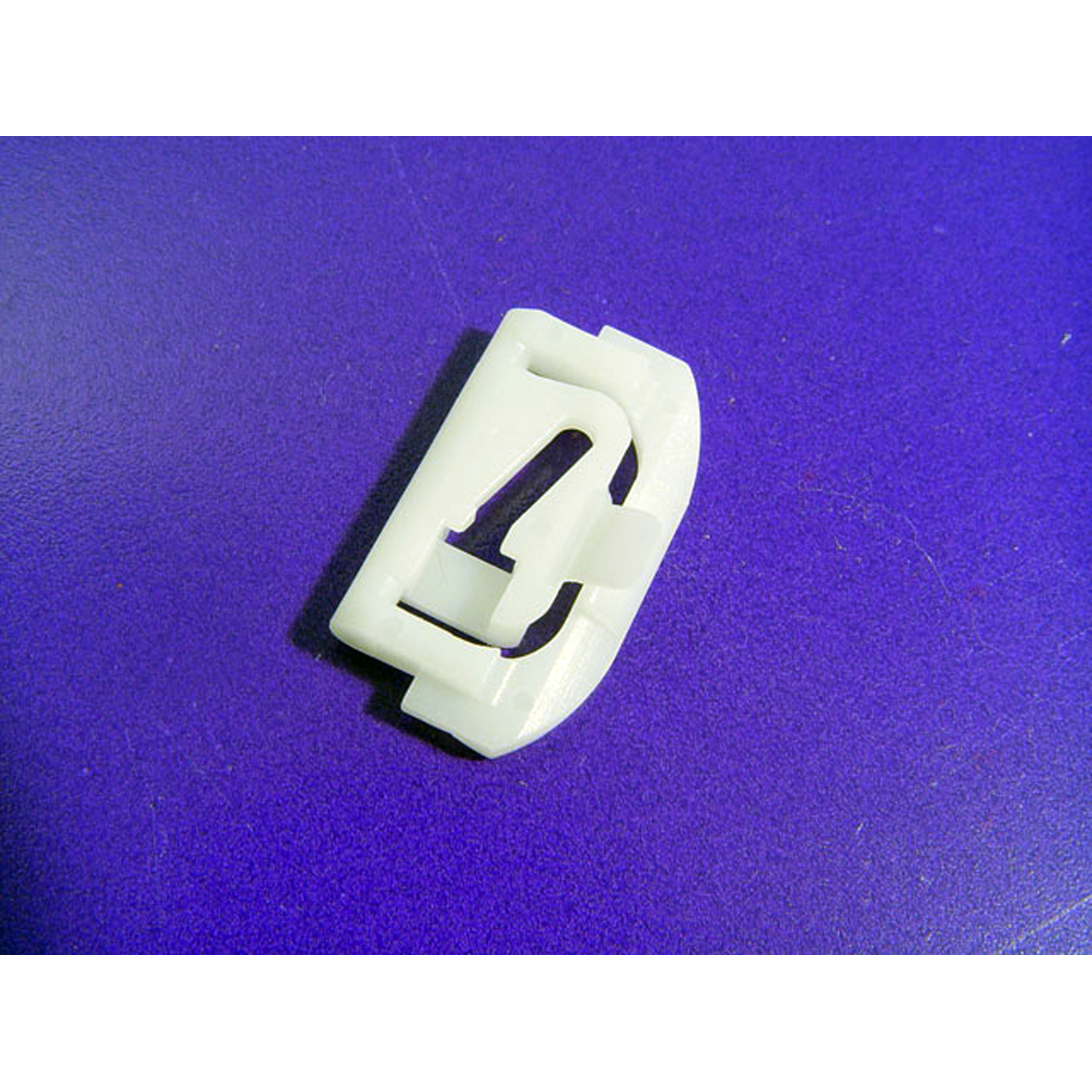 1976 Oldsmobile Omega Lower Side Window Reveal Molding Clip. Made of nylon-WF 214Lower Side Window Reveal Molding Clip. Made of nylon. 1-1/4" x 3/4". Each
1976 Oldsmobile Omega Lower Side Window Reveal Molding Clip. Made of nylon-WF 214Lower Side Window Reveal Molding Clip. Made of nylon. 1-1/4" x 3/4". Each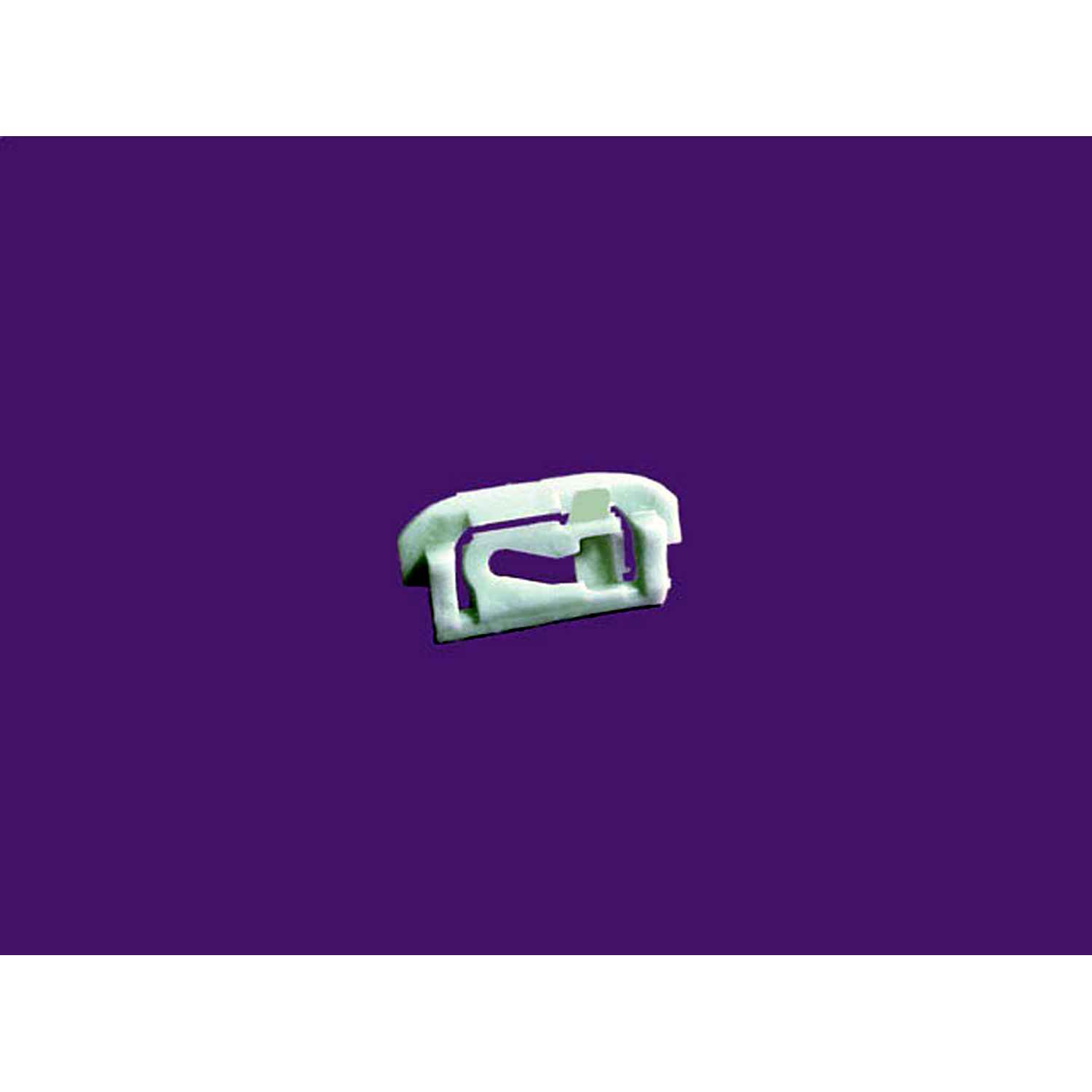 1976 Oldsmobile Omega Windshield and Rear Windshield Reveal Molding Clip-WF 215Windshield and Rear Windshield Reveal Molding Clip. Made of nylon. 1-1/4" X 5/8". Each
1976 Oldsmobile Omega Windshield and Rear Windshield Reveal Molding Clip-WF 215Windshield and Rear Windshield Reveal Molding Clip. Made of nylon. 1-1/4" X 5/8". Each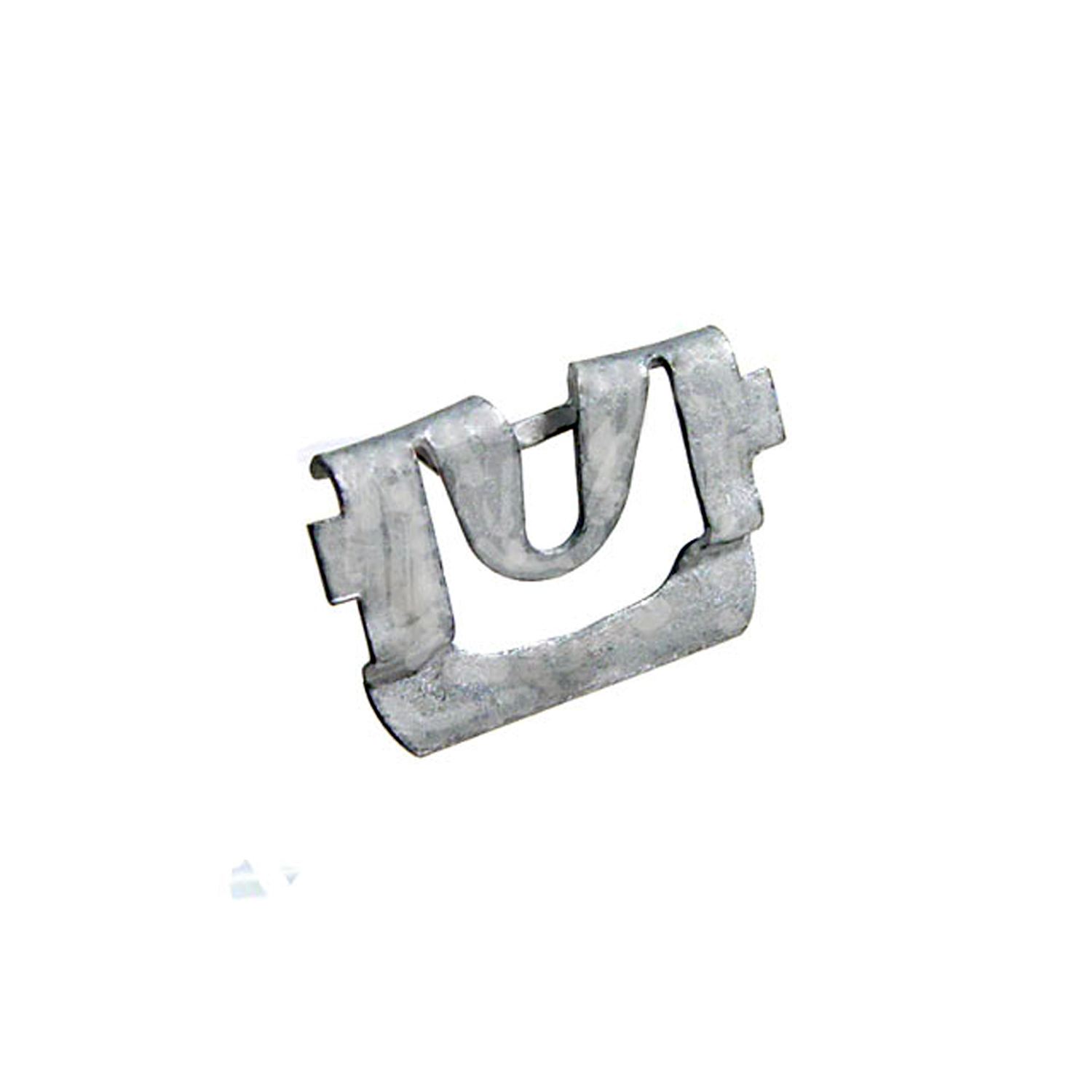 1976 Oldsmobile Omega Windshield Reveal Molding Clip. Made of steel-WF 223Windshield Reveal Molding Clip. Made of steel. 1/1/8" X 3/4". Each
1976 Oldsmobile Omega Windshield Reveal Molding Clip. Made of steel-WF 223Windshield Reveal Molding Clip. Made of steel. 1/1/8" X 3/4". EachWhy Choose Metro?
For over 100 years, Metro Moulded Parts has been the pinnacle of quality in classic car restoration parts. Our commitment to precision and authenticity in every component ensures a perfect fit and an OEM-level appearance.
- Expert Craftsmanship & Quality: Each part is a testament to our dedication to reliability and perfection, crafted from original designs and thoroughly tested.
- Advanced Technology: We use cutting-edge techniques to create flawless, long-lasting parts that surpass others in performance.
- SuperSoft Sponge – The Ultimate Door Seal: Not only are our door seals 30% softer than competitors', but they're also guaranteed to never leak. They effectively reduce wind and road noise, enhancing your classic car's comfort and driving experience.
- Proudly American: Our parts are a product of American craftsmanship, made in the USA with a spirit of excellence and heritage.
- Unrivaled Warranty: We back our products with a 30-year industry-leading warranty, a testament to our confidence in their quality.
Join us in preserving the legacy of classic cars with parts that are crafted for perfection, not just made.

